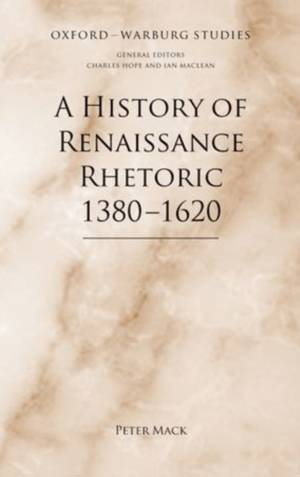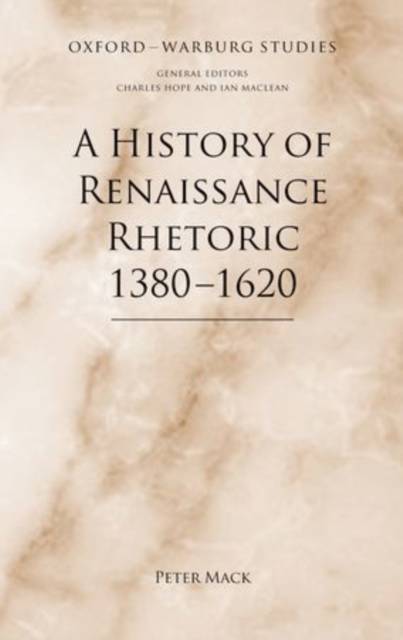
Bedankt voor het vertrouwen het afgelopen jaar! Om jou te bedanken bieden we GRATIS verzending (in België) aan op alles gedurende de hele maand januari.
- Afhalen na 1 uur in een winkel met voorraad
- In januari gratis thuislevering in België
- Ruim aanbod met 7 miljoen producten
Bedankt voor het vertrouwen het afgelopen jaar! Om jou te bedanken bieden we GRATIS verzending (in België) aan op alles gedurende de hele maand januari.
- Afhalen na 1 uur in een winkel met voorraad
- In januari gratis thuislevering in België
- Ruim aanbod met 7 miljoen producten
Zoeken
A History of Renaissance Rhetoric 1380-1620
Peter (Director of the Warburg Institute, University of London;
€ 186,45
+ 372 punten
Uitvoering
Omschrijving
This is the first comprehensive history of renaissance rhetoric, an advanced training in the use of language to argue, persuade, and convey information, which was an essential component of renaissance culture, and discusses rhetorical training as well as the opinions on rhetoric of major scholars including Erasmus, Melanchthon, and Sturm.
Specificaties
Betrokkenen
- Auteur(s):
- Uitgeverij:
Inhoud
- Aantal bladzijden:
- 360
- Reeks:
Eigenschappen
- Productcode (EAN):
- 9780199597284
- Verschijningsdatum:
- 14/07/2011
- Uitvoering:
- Hardcover
- Afmetingen:
- 160 mm x 220 mm
- Gewicht:
- 554 g

Alleen bij Standaard Boekhandel
+ 372 punten op je klantenkaart van Standaard Boekhandel
Beoordelingen
We publiceren alleen reviews die voldoen aan de voorwaarden voor reviews. Bekijk onze voorwaarden voor reviews.









